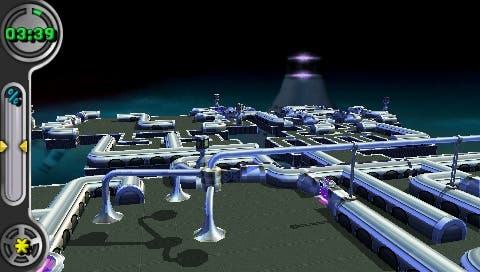What Are You Like?
"I don't like strategy games." Hrm. Are we missing the point?

"I don't like strategy games." Bet you've heard that one before. I have. But while some would say it's disappointing, perhaps it's just a misunderstanding. I don't personally find that games like Act of War can hook me in the way that they do "hardcore RTS fans", but if you put Advance Wars or Fire Emblem or even Sim City in front of me then I'm happy as a peon in a mine. Are they all not strategy games?
Genres seem to have become more useful in helping people to avoid games than in finding the good ones. It's understandable in some ways. With so many good games released onto the market every year at silly prices it's only natural that people tend to be once bitten, twice shy.
But it does make it difficult to get people to try things out. Some people fall in love with a couple of identikit games and then spend their whole lives searching for the exact same thing, eschewing all others. I've had conversations with people who I know love both strategy and shooter games and been unable to convince them to try something like Savage: The Battle for Newerth, which blends the pair. To just try it!
So how do we deal with this? Well, one option - the one we've all quietly been using without any great fanfare across the industry for quite some time - is to dilute the genre pool with sub-generic classifications like "tactical shooter". But, if you ask me, that's just exacerbating the problem. It's fine to have preferences, but by shoving people down even narrower alleyways we're not really recognising what it is their preferences actually are. Some puzzle fans may simply be in love with moving blocks and watching them disappear, sure, but what if they're actually in love with the pressure of clearing things out before the time is up, or the need to keep restarting and restarting to play the perfect game?

These are qualities that are equally true of games in far-flung "genres" that have never otherwise met. Compare, for example, my own love of TrackMania: Sunrise and Mercury, both of which I'm playing at the moment. TrackMania involves driving really fast through courses full of blind turns and huge jumps and trying to beat times, find the most efficient route or stay the line perfectly. Mercury is about moving blobs of liquid metal around mazes by tilting the ground under them, trying to beat times, find the most efficient route or stay the line perfectly. Aha!
Describing TrackMania as "a racing game", or "a racing game with puzzle elements", and calling Mercury simply "a puzzle game", or "a Marble Madness clone" does sum them up to a certain extent, but those descriptions don't really convey what it is that's so compulsive about the pair of them. Perhaps, instead of trying to find a way to classify them together in terms of what it is you see them doing, those of us looking for new gaming obsessions would be better served by identifying what it is that makes us sit and restart the same level again and again in search of a perfect outcome.
I reckon my passion for both those games is drawn from a lot of common themes. Consider it further and you realise that even the flaws have a kind of similar nature to them. Both games are well designed, but in TrackMania, the use of the cursor keys for steering heightens tension because it's very hard not to over- or under-correct as you line up jumps, while in Mercury the camera has difficulty knowing where to focus when your liquid metal blob splits into multiple smaller blobs. Both issues are slightly irritating, but both are also integral aspects of what it is I love about the pair of them.

If you ask me (and your mouse-click kind of suggests you did), these sorts of similarities in terms of the things we love doing in games have the potential to convince other people to cross between genres in ways we haven't seen since more innocent times, when just about anybody would try anything. When I wound up losing several moons to Descent and Terminal Velocity despite having not liked EF 2000. All three simulate flight, but anybody who's played all three will recognise that the first two are nothing like the latter. What if I'd said, "I don't like flight sims"? These days it's so hard to convince people.
As a result we find ourselves trying to recommend something like Final Fantasy X to fans of The Legend of Zelda: Ocarina of Time because they want "another role-playing game". Sure, they'd be on the same page in a generic buyer's guide, but one's heavily stat and cinematic based with a sweeping end-of-the-world plot line, while the other's relatively cute, tightly designed around puzzle-based dungeons and very much action-oriented. TrackMania: Sunrise and Mercury belong on the same page of my buyer's guide, but probably wouldn't even be in the same chapter of somebody else's.
So, next time your friend says, "I just completed Doom III and really loved it. What else have you got that's like that?", don't just offer him Half-Life 2 and Far Cry. I mean, for god's sake do offer them at some point, but before you do you might want to find out what it was that he really loved about Doom III instead of leaping to conclusions. If you do, you might well discover that what he really wants is something like Resident Evil that shares the mood and "boo!" factor, and from there he might decide to tackle Devil May Cry for its similar love of lateral thinking puzzles. From there he might become a devotee of something like Viewtiful Joe for its love of layered combat techniques. All of a sudden you've steered him onto a much more varied and interesting path through our little hobby.
"I don't like strategy games," then. Well, I don't like genres for doing that to you.

